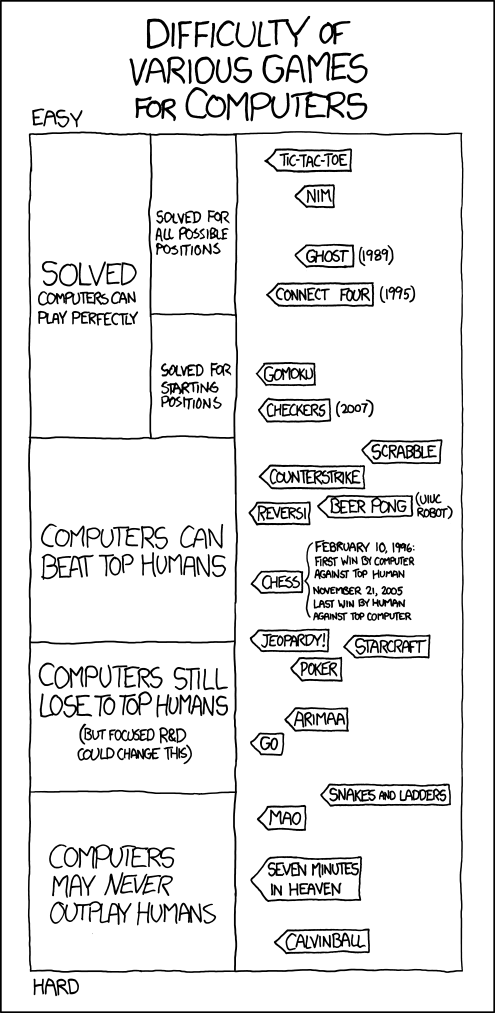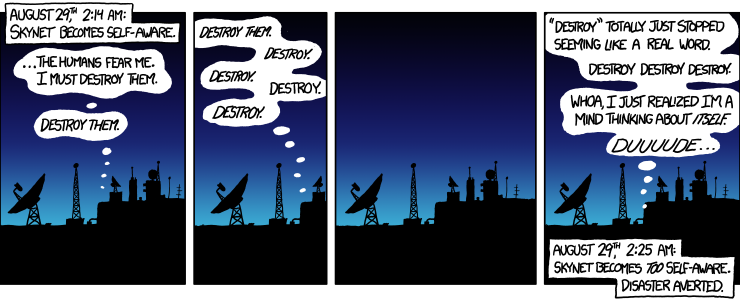In the past week, a battle has been fought for the future of the world. A battle between man and machine. A battle taking place on a 45 cm squared wooden board.
Over the past week, a computer algorithm named AlphaGo has been locked in a titanic struggle with the best of humanity. At least, the best of humanity at playing the board game Go.
Go, for those of you that don’t know it, is a board game that has its origins in ancient East Asia. Two players play on a 19×19 board, with small black or white stones. The goal of the game is to surround areas of the board with your own stones. You can also ‘take’ your opponents stones by surrounding them with stones of your own colour. Simple.
But with the simplicity of these rules, it is a remarkably complex game. There are no fixed strategies, and the number of permutations of the board make it near-impossible to design an algorithm to play Go (in the way that you can with chess).

There are, in fact, over 10761 potential Go boards, which is far more than there are atoms in the universe. That is also 10659 more options than a chess board. And all of that makes Go hell to program a computer to play. Chess-playing computers were cracked in the 1990s, and since Deep Blue beat Garry Kasparov, the chess world champion, in 1996, computers have held the crown. 2005 was the last time that a chess world champion beat a computer at chess, and it is likely we will never beat them again.
(Fun anecdote. At one point in the Kasparov-Deep Blue match, the computer made a move that, by Kasparov’s own admission, he didn’t understand. And that scared the s**t out of him, because he thought that the computer had reached a level of intelligence where it could perform strategies that he couldn’t even comprehend. That was the first match where computers first overtook humans at chess.
In fact, that move was caused by a bug in the software, and was totally random.)
So, Go is a game far more complex and subtle than chess, and it has previously been beyond the realms of AI. It is right up there. In the words of xkcd:

Until October 2015. When a team working for Google’s DeepMind system published a paper in Nature announcing they had designed an AI called AlphaGo. The same month, AlphaGo beat the European Go champion, Fan Hui, 5-0 in a match series. This week, it played the world No1 Go player in Korea, Lee Sedol. And it won. 4-1. We, as a species, have lost another game to our own computers. The student has become the master.
And the way that AlphaGo did it is really clever. The algorithm learns. Every match that it plays, it analyses every single move and every single possible move at any point in the game, for both itself and its opponent. And then it learns what is the best one. So if it is ever in a similar scenario, it will know what to do.
Case in point. In the fourth match, the only one that Sedol one, he executed an attack that has become known as ‘move 78’. You can see it on a graph of the game.

You can see turn 78 marked here, and the number of mistakes made by AlphaGo in succession. That is because move 78 was incredibly complex, so was not something that AlphaGo had seen performed before. It didn’t know what to do.
But if there is a rematch, where the game is recreated up to move 77, AlphaGo will win the bout. Because now it knows what to do. It has learnt from it’s mistakes, and is now even smarter for it. Soon, it will be unbeatable.
Luckily, there is still hope. We all know what happens to computers that become too smart.
